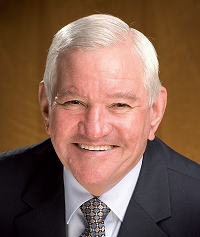
A new report for pteg has forecasted a bleak picture of patronage decline and fares increases for urban bus services outside London by 2014.
The report ‘Underpinning Policy: Modelling bus subsidy in English Metropolitan Areas’ conducted by MVA Consultancy has used what pteg describes as “the most sophisticated modelling tool for forecasting the impact of public spending reductions”, at an aggregate level, across the bus markets in Britain’s six largest urban areas outside London.
It forecasts that between 2009 and 2014:
- Patronage will decline by 20%;
- Fares will increase by 24% above the rate of inflation;
- and Service kilometres will decline by 19%.
The impact of this decline on the wider economy will be an increase in urban congestion costs of £68m.
This forecast decline will reflect a continuation of recent trends. The latest available DfT figures show that in the metropolitan areas bus patronage fell by 2.9% between 09/10 and 10/11.
“These results show the trend towards rising fares and falling demand, observed over the past decades in metropolitan areas, are likely to continue into the foreseeable future,” the report concluded. “If anything, this trend is likely to be compounded by the current economic climate and confirmed cuts in central and local government services.”
The report also looks at what the implications would be if the Competition Commission were to be entirely successful in reducing excess profits and competition failure in the industry.
These scenarios necessarily require a more complex set of assumptions, said pteg. However it said the modelling exercise suggests reductions in service levels (even with government spending cuts) would be substantially reduced, fare levels would not increase and patronage decline would slow down.
Commenting on the report, Cllr Mark Dowd, chair of the group of six Integrated Transport Authorities (ITAs) said: “It gives a clear warning that without policy change we face further vertiginous decline in bus services which will have significant impact on traffic congestion, social division, carbon emissions and on the ability of our cities to play their full part in rebalancing the national economy.”
He added: “As ITAs we have a big job to do in working with bus operators to ensure these forecasts do not become reality.
“However, we also need the government and the Competition Commission to do their bit by taking a long hard look at both current levels of support for bus services and how it can be most effectively deployed to make every pound count.
Dowd concluded: “A business as usual bus policy from government will mean bus service decline as usual – with the most vulnerable in our society the ones who will lose out. What this report shows is that without policy change from government we will be continually trying to run up a downward escalator of funding cuts.”


